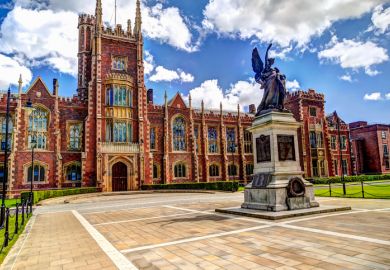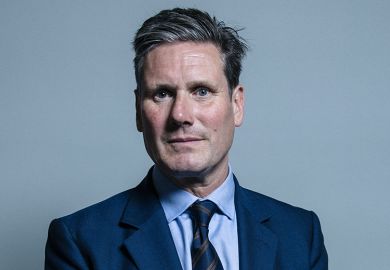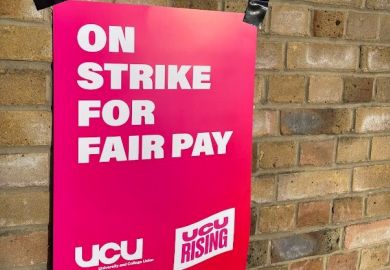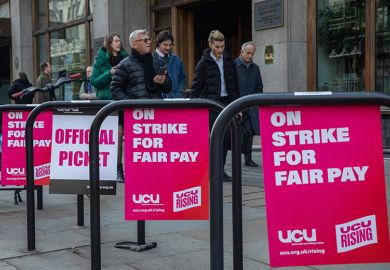Unions and employers clashed afresh on higher education sector pay after the Westminster government announced pay rises of up to 7 per cent for millions of public sector workers.
The University and College Union (UCU) said the fact that prime minister Rishi Sunak had accepted the recommendations of independent pay review bodies meant that vice-chancellors’ insistence that they could not afford to go further on remuneration was “untenable”.
But the Universities and Colleges Employers Association (Ucea) said that the public sector pay awards were in line with the higher education rise for 2023-24 of between 5 per cent and 8 per cent, and that institutions faced mounting financial pressures.
The two sides are due to meet on 14 July in a bid to find a way out of the sector pay dispute, which has been the focus of repeated rounds of strike action and, since 20 April, a marking and assessment boycott that has led to academics having thousands of pounds deducted from their salaries.
Under the terms of the public sector awards, pay for police and prison officers will rise by 7 per cent, teachers by 6.5 per cent, consultants and junior doctors by 6 per cent and the armed forces by 5 per cent. All four teaching unions said they would urge their members to accept the rise, which would end months of strike action in schools.
Raj Jethwa, Ucea’s chief executive, insisted that universities’ offer was “comparable to settlements in the wider economy, including the public sector workers’ pay rises”, but the UCU would highlight that many of its members will only get 5 per cent.
Jo Grady, the UCU general secretary, said Ucea “needs to make us an improved offer”.
“After unprecedented industrial unrest, Rishi Sunak has today been forced to honour pay review body recommendations. This makes Ucea’s position on pay untenable; when it meets with us tomorrow, it needs to get realistic,” Dr Grady said.
“Universities have billions in reserves and can afford to pay staff properly; instead, vice-chancellors are choosing to make students and staff suffer.
“Ucea’s refusal to settle this dispute means staff are getting their pay docked, international students are losing visas, and thousands upon thousands of students cannot graduate.”
Mr Jethwa claimed that the public sector pay award was “irrelevant” to the higher education dispute.
“It doesn’t mean that collectively the sector can suddenly afford more for the 2023-24 pay uplift,” he said. “The financial state of…institutions has not improved since we brought forward the pay round to help staff with cost-of-living pressures.”
Mr Jethwa highlighted that many universities now faced “steep” increases in contributions to the Teachers’ Pension Scheme.
But he said the 14 July talks “provide a potential opportunity to find a resolution”, and added that he “welcomes the willingness of the unions to discuss Ucea’s proposal for an independent review of sector affordability”.
The row comes just days after Queen’s University Belfast had its membership of Ucea revoked for three years “in the first instance” for striking a local deal on a pay rise to end the marking boycott.
Register to continue
Why register?
- Registration is free and only takes a moment
- Once registered, you can read 3 articles a month
- Sign up for our newsletter
Subscribe
Or subscribe for unlimited access to:
- Unlimited access to news, views, insights & reviews
- Digital editions
- Digital access to THE’s university and college rankings analysis
Already registered or a current subscriber? Login








